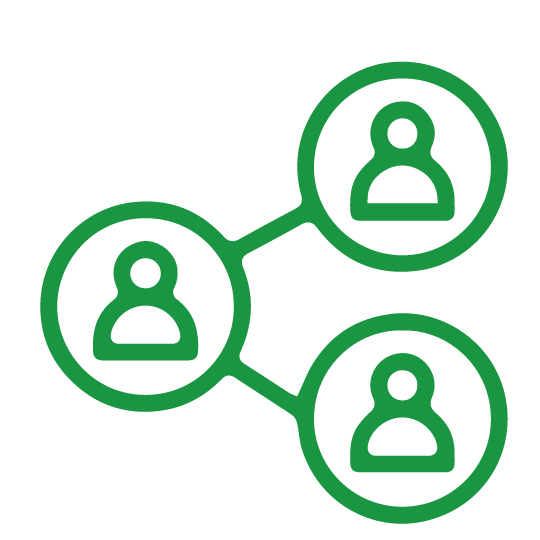From self-developed robots, interactive dashboards and data-driven process improvement to location-independent working, the finance function is in full swing. And Covid-19 has not exactly put the brakes on this. Speaking to Lorentz Perdon, finance-IT consultant at Improven, about the turbulence and impact of Corona on the finance function.
"As a result of corona, organisation-wide many activities are performed from home. Working from home is also the norm for the finance function. After all, for things like accounting and financial analyses, you don't need to be in the factory or shop. Work can be done remotely, so we try to organise that for better or worse. However, in these times it is also very noticeable that connectedness, harmony, transparency and visibility are particularly important for finance.
In the pre-Corona era, much of the accounting and month-end closing was still done on-site. Due to tight deadlines and usually limited resources around month-end, finance managers preferred to be physically present and make direct adjustments on the shop floor. There was usually a short notice.
The transition forced by corona to a monthly closure from home had an impact. For some it was a final push to work completely remotely, for many others it involved an unforeseen change. The pressure on existing processes and systems logically increased and they did not always prove to be able to withstand it. Fortunately, modern applications are amply available to shape the transition to a future-proof financial function," argues Perdon.
To help customers with this, Improven works with leading technology partners. One of these partners is BlackLine, a Robotic Process Automation (RPA) platform for standardising and automating financial and accounting processes, including the compliance around them.
The move to a modern finance function
"Traditional accounting and month-end processes lean heavily on the use of spreadsheets. Sophisticated spreadsheets are used for balance sheet reconciliations, reconciling transactions and driving month-end activities. For small organisations, this can work fine, however, it remains maintenance-intensive and information quickly becomes fragmented. An element is easily overlooked and a mistake is easily made. Such scenes can lead to surprises during the annual audit and a lot of additional work," says Perdon.
"Organisations looking to transition to a modern finance function are often looking for an innovative solution that replaces countless spreadsheets. On top of that, corona has made visibility and transparency even more important now that not everyone works in the office anymore. A logical first step you can take is to house all month-end activities in one central location. With often little effort, a command centre can be set up, as it were, for signing off and monitoring activities. In this way, management retains an overview of who is doing what actions when, and it remains clear at any time where one stands in the process.
Modern applications can take a lot of operational work off their hands and allow organisations to focus on the exceptions. For this, RPA solutions and SaaS products are often looked at. The implementation of such applications is often extensive and can have a lot of impact on existing ways of working. To best prepare customers for this, Improven uses a hybrid implementation approach, which focuses on natural knowledge transfer. This means that future key users are part of the implementation team. Through coaching and training, they can gradually take on an increasing part of the implementation activities independently. Not unimportantly, corona has shown that this approach also works extremely well remotely".
Using this approach, Improven has successfully revamped the process of balance sheet reconciliations with several clients. Balance sheet accounts that meet predefined criteria are automatically declared by BlackLine. Balance sheet accounts that fall outside it are then assigned to the right people or teams, who can record the substantiation via templates in a uniform manner.
Financial solutions, including BlackLine, are often an add-on to the ERP system. Despite the fact that ERP solutions are quite mature, they are not specifically designed for accounting processes. "ERPs are not built for everything" is something we often hear and experience in practice. Partly because not all ERP solutions offer functionality around the creation of manual journal entries, we see an increasing demand for possibilities to get a better grip on manual entries. Modern solutions respond to this with functionality for recording all actions, with automatic checks on entered data and a workflow for approval and review.
Retail and financial institutions also regularly run into the limits of ERP solutions. These organisations process a high volume of transactions. ERP solutions provide functionality to reconcile transactions, such as an invoice with a payment. However, most ERP solutions fall short once the need becomes more complex. Organisations with a separate procurement system, for example, often have to perform manual operations to reconcile orders, invoices and payments. Modern solutions respond to this as well, using business rules to automatically reconcile multiple sources.
The above examples are just a small sample of the wide world of possibilities in the finance function. It is expected that corona will create an increasing demand and need for new innovative possibilities. Prepare your organisation for this by starting by identifying bottlenecks in current processes and systems. Next, work out which modern solutions will contribute to a future-proof financial function.
More information
Want to know more about applying modern solutions within the finance function? Contact Lorentz Perdon, on +31 (0)6 57 09 25 05 or lorentz.perdon@improven.nl.






















